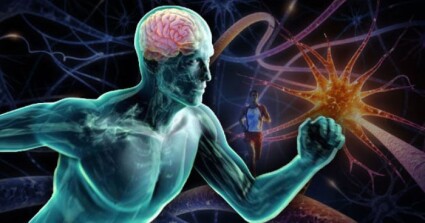
The Link Between Mental Health and Exercise
People today are experiencing a slew of stressors in our fast-paced, information-led world. In an effort to reduce stress and anxiety, we might turn to binge-watching Netflix or consuming alcohol, but these options can cause physical or mental health issues in the long run.
In this post, we’ll explore how exercise is directly linked to a healthy mental state. We’ll also take a look at different options for exercise that fit a range of physical ability levels, helping everyone access exercise’s mental health benefits.

Today’s Mental Health Crisis
It’s easy to feel stuck in today’s world, where many schools, jobs, and even leisure activities require us to be in front of our laptops, phones, or TV screens for hours on end.
Studies show that all of this sedentary screen time is contributing to today’s mental health crisis, exacerbated by the recent COVID-19 pandemic, which left many of us stuck at home and isolated.
However, exercise can serve as a solution to today’s increasing rates of depression and other mental health disorders. Not only is exercise a natural stress reliever, but it also can be just plain fun. The act of regular, sustained movement can serve as a proactive approach to managing mental health, offering people a constructive outlet for emotional expression and a sense of accomplishment.
Physical activity not only transforms bodies but also serves as a gateway to avoiding mental health challenges or breaking free from the constraints that mental health challenges may impose.

The Science Behind Exercise and Mental Health
Delving into the science behind the link between exercise and good mental health unveils a fascinating interplay of biochemical processes.
Exercise triggers the release of endorphins, often referred to as the body’s natural mood boosters. These neurotransmitters interact with specific receptors in the brain, reducing the perception of pain and generating feelings of happiness.
Additionally, regular physical activity contributes to the production of serotonin and dopamine, known for their role in regulating mood and promoting a sense of well-being.
There is also a brain-body connection to explore that further shows how exercise impacts mental health. Increased blood flow to the brain during physical activity enhances cognitive function and supports the growth of new neurons, positively influencing overall brain health.
Inclusive Approaches to Fitness
Inclusive approaches to fitness emphasize that exercise is for everyone, regardless of age, ability, or lifestyle. Different types of exercise can cater to various preferences and physical capabilities, ensuring inclusivity in promoting good mental health.
For instance, low-impact activities like walking or swimming accommodate people with joint concerns, while people with anxiety disorders may benefit from yoga’s and tai chi’s mindful approach to exercise, known for reducing anxiety.
Many options for exercise can further be personalized to meet participants’ needs, such as chair yoga classes and water aerobics classes. Group classes like dance workouts celebrate diversity and create a supportive community, as do group sports, which are also available for a variety of skill levels.
If you love the outdoors, consider exploring local hiking trails through hiking apps like AllTrails. Thankfully, many cities’ parks and rec departments are becoming better aware of the need to offer inclusivity, making more trails wheelchair-friendly, for exam.
Establishing Sustainable Habits
It can be hard to stick to an exercise routine, or even start one. However, keeping the mental, and physical, health benefits of exercise in mind may provide the motivation you need.
For some people, taking small steps to increase their physical activity daily is the perfect starting point. Examples include taking the stairs, going for short walks, doing 10 minutes of yoga, or stretching after waking up in the morning.
Small changes can yield significant results. Before you know it, you may discover that you enjoy movement more than you thought or that a particular form of exercise is a better fit for you.
From here, you can deepen your commitment to setting focused goals for yourself, such as completing two 30-minute yoga classes per week or going on two 30-minute walks per week. As your physical endurance increases, you may find it natural to increase your activity.
This incremental progress not only enhances physical health but also establishes a positive correlation between consistent exercise and mental resilience.
Building sustainable habits often involves finding joy in the processed “s. If you are having difficulty getting started or pushing yourself a bit further, consider asking a friend to join you. Whether it’s taking a tai chi class or a walk in the park together on a regular basis, exercising together increases accountability and enjoyment for many people.

Live Your Best Life
The link between exercise and good mental health gives all of us the opportunity to improve our daily lives through small changes. The more often we can put down our phones, turn off the TV, or otherwise step away from our screens and get outside or just get moving, the more mental health benefits we are likely to experience.
With a wide variety of physical activities available today, for a wide variety of ability levels, it can be easier than ever to get moving. Once we’ve established good exercise habits, we can expect to see lasting improvements in not only our physical health but also our mental health and well-being.
What else do you want to know?
Top 5 Unconventional Workouts That Relieve Mental Stress

Leave a Reply
You must be logged in to post a comment.